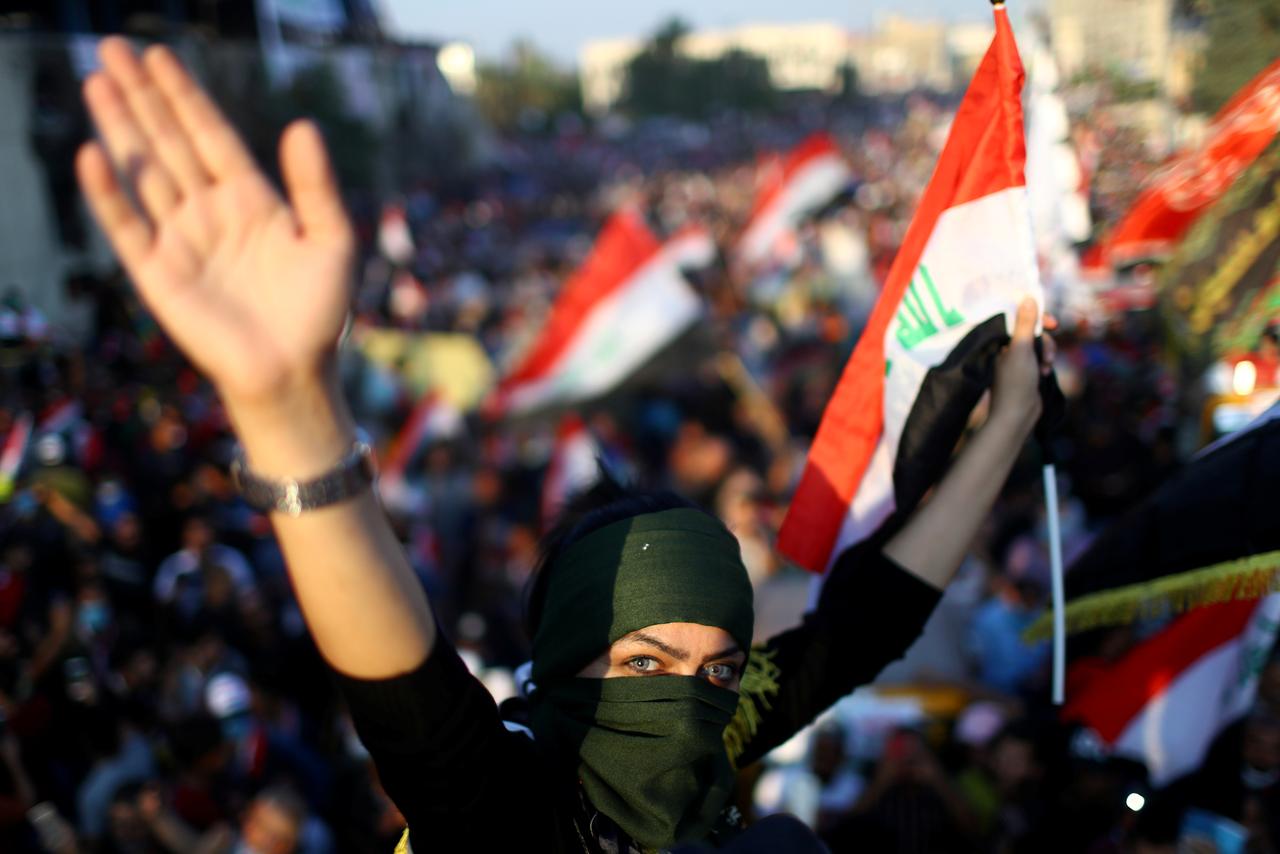Time to wake the slumbering Iraqi giant
https://arab.news/m7cd6

The people of Iraq and Iran share a millennia-long history brimming with differences and conflicts dating back to the Ottoman and Safavid eras. Each considers the other a foe or even an arch-foe. Such historically fraught relations cannot be overcome in a few years, even if this conflict is temporarily suspended due to rapid developments in other areas. These deep-rooted, centuries-old resentments and enmities embedded in both parties’ subconscious will not magically disappear. They are always likely to resurface at some stage, however far they progress in their relations.
In modern history, since the end of the catastrophic 1980 to 1988 Iran-Iraq War, Iran has seized every opportunity to undermine Iraq and has attempted to occupy and subsume it. Up to 2003, Iran failed to achieve its objectives for many reasons, but the poor planning for the period after the US invasion and toppling of Saddam Hussein’s regime left a chaotic vacuum that Tehran quickly exploited at every level. It monopolized many levers and institutions of the Iraqi state, particularly during the tenure of former Prime Minister Nouri Al-Maliki.
The Iranian regime was convinced that Iraqis had a characteristic inclination toward Arab nationalism; obviously a problem for any efforts to subjugate the country under Iranian control. One of Tehran’s first moves, therefore, was to target this tendency in Iraqi society, firstly by working to sever the bonds of communication and cohesion between Iraq and its brotherly Arab countries. This was achieved primarily through defaming the image of Arabs and playing on the perceived sectarian differences between primarily Shiite Iraqis and the predominantly Sunni populations of most Arab nations, with Tehran creating and/or exploiting terrorist groups to foment tensions to help with this sectarian strategy.
Iran’s regime also supported and empowered some Iraqis who had once fought in the ranks of the Islamic Revolutionary Guard Corps against their homeland. It assigned them to carry out sectarian killings, promote a sectarian agenda, and encourage hostility and distrust against other Arab countries, especially Saudi Arabia.
While it is true that some Arab countries had perhaps committed grave strategic blunders as a result of not resuming ties with Iraq after 2003, leaving the Iraqi arena open for Iran to embed itself, it must be noted that these countries had their own justifications and calculations for doing so. It should also be noted that, prior to the 2003 invasion, the US administration failed to heed the warnings and strong recommendations of Gulf States, particularly Saudi Arabia, against invading Iraq and toppling Saddam. Given the historic, warm ties between them, it should be stressed that this short lapse represents only a brief period in the long-standing relations between Iraq and its brotherly neighboring Arab countries.
Tehran has exploited Iraq on the political, economic and ideological levels in recent years, turning the country into a major market for Iranian products of extremely low quality. This is part of the regime’s efforts to create a monopoly, under which Iraqis would be left with no choice but to buy Iranian items, rather than having a wide selection of goods that would leave Iran’s at the bottom of the list.
In addition, Iran has worked tirelessly in the media and other spheres to indoctrinate the Iraqi people with negative and distorted images of other Arab states. At the same time, Tehran did not conceal its expansionist objectives toward its Arab neighbors. Some Iranian officials revealed Tehran’s aims candidly, with Ali Younesi, an adviser to President Hassan Rouhani, stating in 2015 that Iran was transforming the region into its empire, with Baghdad as its capital. Younesi added that citizens of countries neighboring Iran are also Iranian “because their countries were separated from the empire east and west.”
Iran has worked tirelessly to indoctrinate the Iraqi people with negative and distorted images of other Arab states.
Dr. Mohammed Al-Sulami
Photos taken by the deceased terror architect Qassem Soleimani in Iraqi cities, such as Tikrit, and posted on social media underlined the message of domination that the Iranian regime wanted to convey to the Iraqi people. With Soleimani gone, it is time for Iraq to re-establish the prestige and leading position it deserves, as well as to reclaim its political independence, giving priority to Iraq’s interests and its people, while putting the interests of other parties on the back burner.
I want to whisper in the ear of every patriotic Iraqi national: Look for Iraq’s future within yourself and contribute to creating it and to restoring your country to the prominent position it deserves. Pay attention only to your homeland. Heed the warnings and lessons of the past in order to understand the present and foresee the future. You will find us as your right hand, which embraces you, reiterating optimism about the positive future dreamt of by all Iraqis and all those who love Iraq’s dream. Now is the time for the slumbering Iraqi giant to wake and rise once again, to throw off the burdens of the past 15 years and return to the Arab sphere, and — more importantly — to the position you deserve.
- Dr. Mohammed Al-Sulami is Head of the International Institute for Iranian Studies (Rasanah). Twitter: @mohalsulami










































